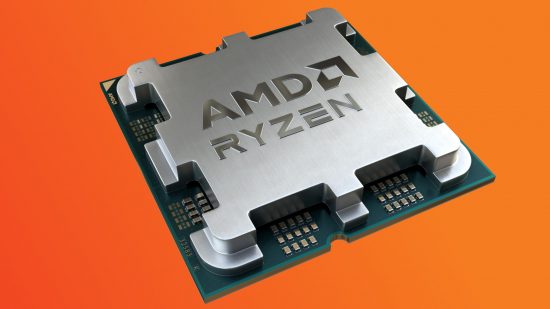The first details on AMD Ryzen 8000 specs appear to have leaked well ahead of launch, offering us our first glimpse at the next generation of AM5 processors. With this information, we now may have some idea as to the number of cores and amounts of cache these Zen 5 chips will feature, as well as how much power they’ll draw.
Not content to rest on its laurels, it’s no secret that AMD is working on Ryzen 8000 processors to maintain its place at the head of the best gaming CPU race against Intel. However, it seems the company won’t be leaning on more cache and cores to provide performance improvements.
According to documents seen by PCGamesHardware, the AMD Ryzen 8000 series will feature the same number of cores as current generation chips. While this does mean that a prospective AMD Ryzen 9 8950X will pack 16 cores, like its predecessor, they’ll be designed using the more performant Zen 5 microarchitecture.
The rumored AMD Ryzen 8000 specs are:
| Cores | Up to 16 (Zen 5) |
| Threads | Up to 32 |
| L3 cache | Up to 64MB |
| L2 cache | Up to 16MB |
| TDP | Up to 170W |
| Socket | AM5 |
Similarly, L3 and L2 cache sizes will remain at 64MB and 16MB, respectively, and TDP will top out 170W. However, we’ll likely see 3D V-Cache variants arrive after the first wave of desktop CPUs come to market, as we did with the 7800X3D and other chips.
One thing that has changed, though, is that the AMD Ryzen 8000 series will be manufactured using TSMC’s 3nm process. This means that these CPUs will be more efficient and either offer the same level of performance with less power consumption, or leapfrog current processors with the same power draw.
It’s suggested that the AMD Ryzen 8000 release date will fall at some point in the second half of 2024, two years after the launch of Zen 4. We should expect to learn more about these CPUs as the launch draws closer, and they should hopefully offer a good upgrade path for current owners of AM5 motherboards.
In the meantime, check out our AMD Ryzen 5 7600X review if you’re thinking of upgrading your rig with an AM5 chip.
